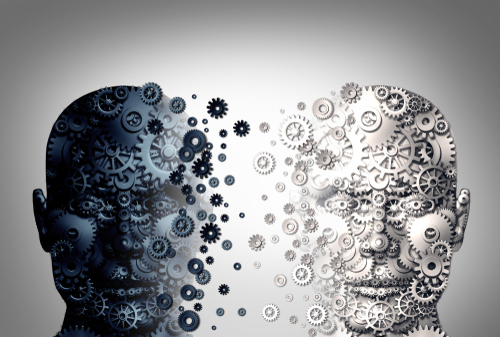
9 Tips for Dealing with Your Manic Episode: It Doesn’t Have to be Hard
Mania is a common symptom of bipolar disorder. Bipolar disorder, one of several conditions classified as mood disorders, can cause you to experience episodes of extreme emotional lows alternating with extreme emotional highs. These altered mood states are known as mania and depression. There are varying types of bipolar disorder, and therefore, the severity and frequency of your individual mood alterations will vary depending on the type of disorder you have. Because everyone can experience times of emotional bulls or emotional highs, it is important to consider whether these mood swings interfere or disrupt your life or the lives of those around you when considering talking to a mental health professional at Meadowglade about your symptoms.
Around the world, nearly fifty million people have bipolar disorder. In the United States, the lifetime prevalence of bipolar type 1 is as high as 1%. Each year, an estimated 3% of adults in the United States receive a bipolar disorder diagnosis. Although the average age of onset for bipolar symptoms is 25 years old, those ages 18 to 29 had the highest rates of bipolar disorder, according to survey results published by Harvard Medical School. Despite the often negative stigma, many individuals with bipolar disorder have provided significant contributions to history, literature, politics, and entertainment.
What is Bipolar Disorder?
Bipolar disorders are classified as mood disorders. Those who experience the symptoms of bipolar disorder will experience changes in mood that alternate between extreme depression and extreme euphoria and happiness. In some cases, the duration of mood changes can last for several weeks. In others, it may be only a few hours or a few days. As noted above, the severity and frequency of mood changes depend on the person and the type of bipolar disorder they have.
Bipolar 1
Bipolar 1 is characterized by symptoms that include at least one manic episode. Depending on the individual, you may or may not experience a major depressive episode before or after a manic episode. Also, some individuals may experience something referred to as a hypomanic episode. Hypomania is less severe than mania, although it can be significantly disruptive to one’s day-to-day life. In some cases, the symptoms you experience with bipolar one disorder can be so disruptive that they require hospital care.
Bipolar 2
Someone with bipolar two experiences a major depressive episode that lasts at least two weeks. Also, someone with bipolar two experiences at least one hypomanic episode. In most cases, people with bipolar two do not experience manic episodes intense enough to require hospitalization, although the symptoms they experienced during mania can be highly disruptive. It is not uncommon for bipolar 2 to be misdiagnosed as clinical depression or major depression. This is because depression is often the predominant symptom at the time they choose to seek treatment. Because there are no manic symptoms present at the time, depression tends to be the initial diagnosis.
The Diagnostic and Statistical Manual of Mental Disorders, Fifth Edition (DSM-5) recognizes two other categories of bipolar disorder. Cyclothymia is a form of bipolar disorder characterized by periods of low-level depressive symptoms followed by periods of hypomania. Someone with cyclothymia will not experience “full-blown” manic or depressive symptoms. Those with bipolar disorder experience intense, often overwhelming symptoms that meet clinical diagnostic criteria for mania and major depression. The symptoms experienced with cyclothymia are generally milder; however, one is at an increased risk of developing bipolar disorder if left untreated. The fourth category, other specified and unspecified bipolar and related disorders, encompasses those conditions that do not fit well into other diagnostic categories.
What is Mania?
Mania is a symptom that is associated with bipolar 1 disorder. As with most mental health symptoms, the intensity and severity of a manic episode will vary slightly from person to person. The Diagnostic and Statistical Manual of Mental Disorders outlines specific diagnostic criteria for manic episodes. Specifically, symptoms of mania must last at least a week (unless you are hospitalized) for your symptoms to be classified as a manic episode. If you are hospitalized and successfully treated, symptoms may last less than a week.
During episodes of mania, your behavior will be significantly different than “normal.” For example, if you are a naturally energetic person, during a manic episode, you will have an abnormal (even unmanageable) level of energy. Other symptoms you may experience during a manic episode include:
· Being unusually social or talkative
· Racing thoughts or the inability to slow your mind down
· Being easily distracted
· Feelings of high (or inflated) self-importance and self-esteem
· Inability to or lack of need to sleep
· Engaging in risky behaviors such as sexual interactions, significant business transactions, illegal activity, and expensive purchases.
Manic episodes can be dangerous and risky for many reasons. Often, someone who is manic lacks the ability to understand what they are doing and believes they are entirely in control of their actions and decisions. In many cases, they are not. In the most severe, someone with mania can experience psychosis, meaning they have lost touch with reality. During manic episodes, you may have difficulties performing and attending to your usual responsibilities such as school, work, and social obligations.
Tips for Coping with A Manic Episode
What mania looks like will vary from person to person. While some who live with bipolar disorder can recognize the onset of manic symptoms, others cannot or may deny the potential severity of their symptoms. If you experience mania, it is likely best to plan ahead as you may not recognize your symptoms at the moment.
Avoid Triggers
If you struggle with episodes of mania, you are likely familiar with specific triggers (people, places, events, etc.) that hasten the onset of or worsen the symptoms of a manic episode. One of the best ways to manage a manic episode is to avoid doing things that may make it worse. Things like illicit drugs, alcohol, and other mood-altering substances can all contribute to mania and inhibit your ability to recover. Making an effort to avoid using substances to cope with mania symptoms may help you recover faster from a manic episode.
Maintain A Healthy Diet
Structure is an essential component to managing the challenges and symptoms of bipolar disorder. It is important to ensure you maintain structure around essential daily functions, including your diet. Try to limit your caffeine and sugar intake while including healthy foods in your daily diet. Not only will this help with your overall physical and emotional health, but it can help reduce the severity of any manic episodes that do occur.
Get Enough Sleep
Sleep provides the body and mind time to unwind and rebuild. For someone with bipolar disorder, a regular sleep schedule is important to help manage symptoms. It is important to follow a regular sleep schedule. Not only will this help with your overall physical and emotional health, but it can help reduce the severity of any manic episodes that do occur.
Use Your Calendar
As previously noted, schedules are vital to someone with bipolar disorder; however, during a manic episode, you may struggle to maintain your schedule. Use your smartphone or another form of calendar to provide daily reminders for essential tasks such as taking your medication or adhering to your sleep schedule. Using a device such as your phone or computer to remind you, you are less likely to let vital components of your day slip.
Remember to Take Your Prescriptions
If you have a regular prescription to reduce the onset, severity, or duration of your symptoms, remember to continue taking your medications as prescribed. Also, work with your healthcare provider to establish a list of medications that help with acute (sudden) symptoms. Although medications do not work well for everyone, there may be specific options that can reduce manic symptoms quicker (antipsychotics) and medications that can prevent future manic episodes (mood stabilizers). If you use or have used these medications in the past and understand which have worked better for you, keep track of that information to share with your healthcare provider for future needs.
Reach Out to Your Healthcare Team
Above all else, if you begin to experience the onset of a manic episode, reach out to your mental health provider or the team at Meadowglade. If you are familiar with the symptoms that indicate an oncoming episode, it is essential to contact your treatment team as soon as possible to discuss your symptoms. Also, if you have a family member or loved one who is familiar with your symptoms, make arrangements with them in advance to contact your provider if you are unable to. Proactivity and advanced planning will help ensure you receive the support and guidance you need as quickly as possible.
Make A Plan
Part of planning ahead includes writing down your plan in case of crisis. Create a plan that includes important phone numbers or contact persons such as crisis lines, walk-in clinics, therapy providers as well as loved ones and supportive peers. Also, include any medications you are taking and your known triggers. Share this plan with someone close to you so they can better support you if you experience a crisis. You can also choose to delegate someone who will or can make decisions for you and take care of vital tasks (feeding your pets, returning purchases, paying your bills, etc.) if you are unable to.
Consider A Psychiatric Advanced Directive
Depending on your personal needs, you may also consider creating an advanced psychiatric directive. This is a legal document that appoints a specific person to act on your behalf while you are experiencing a manic or depressive episode. Creating a directive can help ensure that your wishes, including where you would like to be taken if hospitalization is needed, are honored if you are in crisis.
Learn from Recent Episodes
Although it is not possible to entirely prevent manic episodes, there are things you can do to reduce their frequency and possibly limit their intensity. As you recover from a manic episode, reach out to your mental health provider or family to discuss your recent episode. As strange as it may sound, it is possible to learn from a manic episode to understand better ways to manage or reduce their impact in the future. Consider new or previous triggers that may have contributed to your recent episode and ways to avoid those triggers in the future. Some common mania triggers include drugs, alcohol, skipping sleep, abnormal diet, lack of exercise, missing medications or therapy sessions, and spending time with others who may negatively influence your mood or decisions. Maintaining a healthy routine and avoiding triggers is vital to reducing manic episodes.
If you experience episodes of mania as part of your bipolar disorder symptoms, there are steps you can take to reduce the frequency and severity of your episodes. However, because you cannot prevent mania entirely, it is essential to be prepared for when an episode does eventually occur. Seeking treatment for bipolar disorder and learning more about therapy, prevention, coping, and symptom management can be highly beneficial for both the individual with bipolar disorder and their family. If you would like to learn more about our programs at Meadowglade and how a comprehensive treatment program may help you learn more about managing mania and bipolar disorder, contact our admissions team today.
